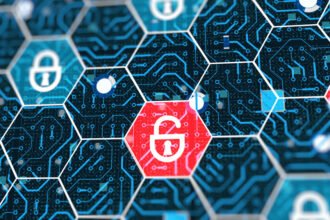With a mountain of existing data privacy regulations and more on the way, it’s more critical than ever to implement strict cybersecurity strategies. If you process data of any kind – even if you only collect email addresses – you need strong cybersecurity measures. Protecting your data is the only way to avoid serious consequences for your customers and your business.
Data breaches lead to fraud and huge fines
Data breaches frequently result in identity theft and credit card fraud. While some cybercriminals need to piece together personal information from multiple breaches, some breaches expose enough data in one incident.
For example, a recent Verifications IO breach exposed 2 billion unencrypted records. Exposed records included email addresses, phone numbers, addresses, birthdates, social media account details, credit scores, and mortgage payment data. This incident is now considered the biggest data breach in history.
Data breaches also have dire financial consequences for the entities at fault; courts have been dishing out maximum financial penalties. For example, UK British Airways received a $230 million fine and Equifax received a $575 million fine.
Want to avoid these consequences? Make sure you have the following cybersecurity measures in place.
1. Get a next generation firewall
Thanks to advances in the way we use computers, standard firewalls don’t provide complete security. However, a next generation firewall can drastically improve your organization’s security posture. For example, next generation firewalls provide different levels of access to users based on predefined policies that include application and identity level verification.
A next generation firewall is the best way to ensure your operations remain compliant with data security regulations like GDPR, PCI-DSS, the New York Shield Act, and the CPRA.
2. Enforce all company data security policies
The majority of data breaches are caused by human error and many can be prevented by enforcing existing security policies. Accident or not, consumers don’t care. Consumer trust is already fragile; 35% of Americans say they would no longer trust a business after a data breach. To demonstrate that lack of trust further, 66% don’t think most organizations would even disclose a data breach.
Many breaches are preventable by simply enforcing data security policies.
Say a marketing team member can’t remember their login information for the company’s CRM account. That team member might innocently ask to use another person’s login information to accomplish their work for the day.
In most cases, sharing login information is harmless. However, say that an employee saves another person’s login information on their laptop. Several months later, they get fired. Their login credentials for your CRM are terminated immediately, but they still have access through the other person’s saved credentials. If that employee feels vengeful, they might sabotage your entire database of contacts.
You can’t take any chances. You need to enforce all security policies no matter how small they seem. If you’re not enforcing your security policies, the likelihood of a breach is high.
3. Utilize end-to-end encryption
Whether you’re encrypting emails, instant messages, or data, end-to-end encryption is a must. Encrypting data at rest doesn’t protect that data when it’s being transferred from one place to another. Likewise, encrypting data in transit won’t keep that data secure once it reaches its destination. End-to-end encryption protects data while in transit and at rest from start to finish.
When you’re governed by data privacy laws like HIPAA, end-to-end encryption isn’t optional.
4. Create and enforce a strict BYOD policy
Do you allow employees to use their personal devices for work? If not, you’ll have to make the switch soon. It’s becoming impossible to run a business without remote workers. Unless you plan on buying every employee a new laptop, remote workers will need to use their own devices.
Anytime employees use a personal device for work, your company data is at risk. Their laptop might get stolen, they might download a torrent file loaded with malware that grants hackers access to your company network, or they might have their browser session hijacked while working at the local coffee shop.
A BYOD policy that requires using a VPN or that prohibits the use of public Wi-Fi will prevent the majority of BYOD security vulnerabilities.
Focus on prevention
You can’t expect any security strategy to be perfect, but prevention is always going to be the largest part of any successful security strategy. You may not be able to prevent all breaches, but you can certainly prevent the human errors that lead to the majority of breaches.











